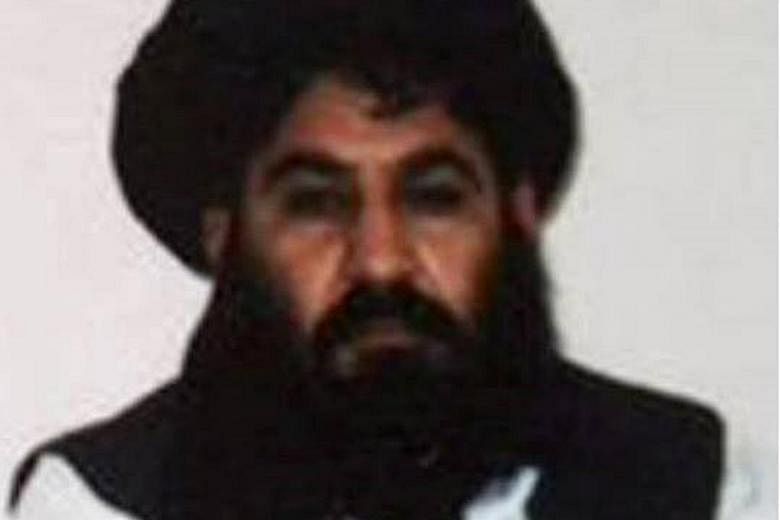ISLAMABAD (Reuters) - Pakistan's interior minister said on Tuesday (May 24) that he could not confirm that Afghan Taleban leader Mullah Akhtar Mansour had been killed in a US drone strike, and described Washington's justification for the attack as"against international law".
US President Barack Obama said on Monday that Mansour had been killed in the drone attack, and the Pentagon said separately that Mansour was plotting attacks that posed"specific, imminent threats" to US troops in Afghanistan.
On Tuesday, Pakistani Interior Minister Chaudhry Nisar Ali Khan told reporters that the body recovered near the Afghan border was charred beyond recognition, adding that DNA samples would be tested against a relative who had come forward to claim the body.
"The government of Pakistan cannot announce this without a scientific and legal basis," Mr Khan told a news briefing.
He did not identify the relative or say whether he or she claimed to be related to the Taliban leader or someone else.
Mr Khan criticised US statements that the drone strike, which he said hit a car on Pakistani soil but was fired "from another country", was justified because Mansour was plotting attacks.
"For the US government to say that whoever is a threat to them will be targeted wherever they are, that is against international law. "This could have serious implications for the Pakistan-U.S. relationship," Mr Khan said, adding that decisions would be made once Prime Minister Nawaz Sharif returned from abroad.
Pakistan and the United States have been uneasy allies in the war against Islamist militants in the region.
US critics accuse Pakistan of allowing the Afghan Taleban's leadership to take shelter on its territory, something that Islamabad has denied.
The militant movement has made territorial gains and carried out a series of deadly attacks across Afghanistan since Nato forces officially wound down their combat mission at the end of 2014, undermining the Western-backed government in Kabul.


